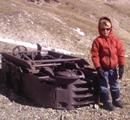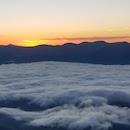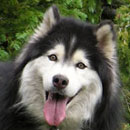I would put an "emergency" 0.5L bottle of water in my pack, just to be safe. You might end up needing it. Ask me how I know.
Sean Nunn
First 14ers - Plan Assessment
Forum rules
- This is a mountaineering forum, so please keep your posts on-topic. Posts do not all have to be related to the 14ers but should at least be mountaineering-related.
- Personal attacks and confrontational behavior will result in removal from the forum at the discretion of the administrators.
- Do not use this forum to advertise, sell photos or other products or promote a commercial website.
- Posts will be removed at the discretion of the site administrator or moderator(s), including: Troll posts, posts pushing political views or religious beliefs, and posts with the purpose of instigating conflict within the forum.
-
nunns
- Posts: 1386
- Joined: 8/17/2018
- 14ers: 43
- 13ers: 5
- Trip Reports (0)
Re: First 14ers - Plan Assessment
"Thy righteousness is like the great mountains." --Psalms 36:6
-
mtree

- Posts: 1625
- Joined: 6/16/2010
- Trip Reports (0)
Re: First 14ers - Plan Assessment
Everyone is different regarding water needs. It also depends on sunshine and temps. I usually bring 2.5 L and never finish it. But, Sean is correct. Err on the side of caution and bring more than you think you'll need. Hydrate BEFORE the hike because its difficult to catch up during the hike. No matter how you slice it, Elbert will be a long day. Lots of elevation gain and about 10 miles so you'll be needing plenty of water.
- I didn't say it was your fault. I said I was blaming you.
-
RockiesAdrian

- Posts: 93
- Joined: 8/9/2013
- 14ers: 58 1
- Trip Reports (1)
Re: First 14ers - Plan Assessment
My default when I was starting out on 14ers was just to fill up my 3L CamelBak. The only times I have ever hiked and found that insufficient were 15+ miles. 2.5 liters should be ample for safely attaining either summit.ZNixon wrote: ↑Wed Jul 24, 2019 11:07 am Speaking of hydration; Do you think a 2.5l bladder should get me up and down each of the peaks, or should I carry an extra liter or two? I feel like 3.5-4.5l will be too much and end up being a lot of unnecessary weight. What do you think? This is excellent advice, experience, and knowledge by the way, I really do appreciate it!
In my experience, the more 14ers you hike in a season, the more you can reduce the water weight you need to bring with you. But for the early season, 2.5-3 liters sets a good baseline.
In theory, there's no difference between theory and practice. In practice, there is.
-
ZNixon

- Posts: 187
- Joined: 7/16/2019
- 14ers: 15 1
- 13ers: 2
- Trip Reports (0)
Re: First 14ers - Plan Assessment
Haha, I'm sure I know somewhat how the story goes!
With all of this knowledge and experience combined, I will err on the side of caution and carry my 2.5l bladder and an additional liter bottle! I would carry a smaller one, but the smallest one I have is a full liter. Oh well, you can never have enough hydration regardless of where in the world you are!
"Those who cannot understand how to put their thoughts on ice should not enter into the heat of debate." -Nietzsche
@ZNixon101
http://zenixon.simplesite.com/
@ZNixon101
http://zenixon.simplesite.com/
-
polar

- Posts: 1250
- Joined: 8/12/2013
- 14ers: 2
- Trip Reports (1)
Re: First 14ers - Plan Assessment
mtree is right that everyone is different. Over time you’ll be able to figure out how much water you’ll need. However, I’ll go against the conventional wisdom here and say don’t plan to bring more water than you think you’ll need. 3L is probably a good baseline to start with. Unless you’re doing 15+ miles in a day, you’re not likely to need all that. Once I figured out how much water I actually drinks, I aim to bring enough water so that I finish it all half way into my descent (not on the summit). For me personally, it's between 1-1.5L for anything less than 10 miles.
How hard you’re working also seems to play a role in water consumption. I only need 1-1.5L of water when I’m out hiking all day, yet I can drink 2L of water in just 2-3 hours if I’m out rock climbing. Even though most of time when rock climbing I’m not even moving, but when I am moving I’m working a lot harder so I need more water.
Do invest in a tiny water filter that you can drink with, I highly recommend the Sawyer Mini. With the Mini I can drink out of a stream, a lake, a trickle of water somewhere, or even rain water pooled on top of a rock. I can also put untreated water in my water bottle / bladder and use the Mini to drink out of that. So if I miscalculated and ran out of water sooner than expected, I can go thirsty for a little while before I find some water. Of course there are mountains that are bone dry especially near the summit, but more often than not when you’re half way down the mountain you can find some water somewhere.
Here’s an old thread with some discussion on how much water to bring:
https://14ers.com/forum/viewtopic.php?t=52484
How hard you’re working also seems to play a role in water consumption. I only need 1-1.5L of water when I’m out hiking all day, yet I can drink 2L of water in just 2-3 hours if I’m out rock climbing. Even though most of time when rock climbing I’m not even moving, but when I am moving I’m working a lot harder so I need more water.
Do invest in a tiny water filter that you can drink with, I highly recommend the Sawyer Mini. With the Mini I can drink out of a stream, a lake, a trickle of water somewhere, or even rain water pooled on top of a rock. I can also put untreated water in my water bottle / bladder and use the Mini to drink out of that. So if I miscalculated and ran out of water sooner than expected, I can go thirsty for a little while before I find some water. Of course there are mountains that are bone dry especially near the summit, but more often than not when you’re half way down the mountain you can find some water somewhere.
Here’s an old thread with some discussion on how much water to bring:
https://14ers.com/forum/viewtopic.php?t=52484
"Getting to the bottom, OPTIONAL. Getting to the top, MANDATORY!" - The Wisest Trail Sign
Re: First 14ers - Plan Assessment
Uhh what science are you basing this on?mtree wrote: ↑Wed Jul 24, 2019 10:26 am
Also, you will get virtually zero acclimation over the first 24 hours whether you stay in Denver or camp at 10,000 feet so don't fret. The most significant "acclimation" you can do prior to the hike is maybe some short wind sprints or high intensity hikes to get your heart and lungs used to what's coming.
After climbing a great hill, one only finds that there are many more hills to climb. -Nelson Mandela
Whenever I climb I am followed by a dog called Ego. -Nietzsche
Whenever I climb I am followed by a dog called Ego. -Nietzsche
-
ZNixon

- Posts: 187
- Joined: 7/16/2019
- 14ers: 15 1
- 13ers: 2
- Trip Reports (0)
Re: First 14ers - Plan Assessment
polar wrote: ↑Wed Jul 24, 2019 3:08 pm mtree is right that everyone is different. Over time you’ll be able to figure out how much water you’ll need. However, I’ll go against the conventional wisdom here and say don’t plan to bring more water than you think you’ll need. 3L is probably a good baseline to start with. Unless you’re doing 15+ miles in a day, you’re not likely to need all that. Once I figured out how much water I actually drinks, I aim to bring enough water so that I finish it all half way into my descent (not on the summit). For me personally, it's between 1-1.5L for anything less than 10 miles.
How hard you’re working also seems to play a role in water consumption. I only need 1-1.5L of water when I’m out hiking all day, yet I can drink 2L of water in just 2-3 hours if I’m out rock climbing. Even though most of time when rock climbing I’m not even moving, but when I am moving I’m working a lot harder so I need more water.
Do invest in a tiny water filter that you can drink with, I highly recommend the Sawyer Mini. With the Mini I can drink out of a stream, a lake, a trickle of water somewhere, or even rain water pooled on top of a rock. I can also put untreated water in my water bottle / bladder and use the Mini to drink out of that. So if I miscalculated and ran out of water sooner than expected, I can go thirsty for a little while before I find some water. Of course there are mountains that are bone dry especially near the summit, but more often than not when you’re half way down the mountain you can find some water somewhere.
Here’s an old thread with some discussion on how much water to bring:
https://14ers.com/forum/viewtopic.php?t=52484
How often do you have to replace the filter? Or do you just replace the device, altogether?
"Those who cannot understand how to put their thoughts on ice should not enter into the heat of debate." -Nietzsche
@ZNixon101
http://zenixon.simplesite.com/
@ZNixon101
http://zenixon.simplesite.com/
-
dwoodward13

- Posts: 855
- Joined: 3/26/2011
- 14ers: 58 12
- 13ers: 173 6
- Trip Reports (1)
Re: First 14ers - Plan Assessment
Its an all in one, so there's no removable filter. According to Sawyer its good to 100,000 gallons of water. One thing to make sure is to not let it get below freezing, as the expansion of the water crystals when frozen expands the pores of the filter and thus make it no longer effective (or at least as effective). I sleep with mine on overnight trips in the sleeping bag. Highly recommend picking one up. Can get them pretty much anywhere, including Walmart for ~20 bucks last I saw.
-
polar

- Posts: 1250
- Joined: 8/12/2013
- 14ers: 2
- Trip Reports (1)
Re: First 14ers - Plan Assessment
Sawyer Mini is rated for filtering up to 100,000 gallons of water, so I doubt you’ll need to replace it unless you damage it. It’s also quite durable since there is no moving parts, which also means you have to replace the whole unit if you do need a new filter. But it’s pretty cheap. The filter can get clogged if you filter really dirty water (I’ve never had that happen since I’m pretty careful with my water source), but you can backflush it to clean it. I always backflush mine when I get home after I used it on a trip, before shaking out all the water from the filter and storing it.
"Getting to the bottom, OPTIONAL. Getting to the top, MANDATORY!" - The Wisest Trail Sign
-
ZNixon

- Posts: 187
- Joined: 7/16/2019
- 14ers: 15 1
- 13ers: 2
- Trip Reports (0)
Re: First 14ers - Plan Assessment
polar wrote: ↑Thu Jul 25, 2019 8:26 amSawyer Mini is rated for filtering up to 100,000 gallons of water, so I doubt you’ll need to replace it unless you damage it. It’s also quite durable since there is no moving parts, which also means you have to replace the whole unit if you do need a new filter. But it’s pretty cheap. The filter can get clogged if you filter really dirty water (I’ve never had that happen since I’m pretty careful with my water source), but you can backflush it to clean it. I always backflush mine when I get home after I used it on a trip, before shaking out all the water from the filter and storing it.
dwoodward13 wrote: ↑Thu Jul 25, 2019 8:26 amIts an all in one, so there's no removable filter. According to Sawyer its good to 100,000 gallons of water. One thing to make sure is to not let it get below freezing, as the expansion of the water crystals when frozen expands the pores of the filter and thus make it no longer effective (or at least as effective). I sleep with mine on overnight trips in the sleeping bag. Highly recommend picking one up. Can get them pretty much anywhere, including Walmart for ~20 bucks last I saw.
Ahhh, this is the best answer I could have expected! It seems completely worth the investment, I'll definitely be picking one up this week!
"Those who cannot understand how to put their thoughts on ice should not enter into the heat of debate." -Nietzsche
@ZNixon101
http://zenixon.simplesite.com/
@ZNixon101
http://zenixon.simplesite.com/
-
mtree

- Posts: 1625
- Joined: 6/16/2010
- Trip Reports (0)
Re: First 14ers - Plan Assessment
The BEST science available. First hand experience!Trotter wrote: ↑Thu Jul 25, 2019 2:21 amUhh what science are you basing this on?mtree wrote: ↑Wed Jul 24, 2019 10:26 am
Also, you will get virtually zero acclimation over the first 24 hours whether you stay in Denver or camp at 10,000 feet so don't fret. The most significant "acclimation" you can do prior to the hike is maybe some short wind sprints or high intensity hikes to get your heart and lungs used to what's coming.
I'm sure there's plenty of so called "science" out there, but I can assure you from a purely physiological standpoint 24 hours of hanging around at altitude isn't going to make any noticeable difference in your acclimation. That's like saying you're going on a diet to lose 10 lbs and tomorrow you'll notice a BIG change.
Getting your body used to physical exertion is far more useful. Kinda like jogging before a big run. Its like warmups for your lungs and circulatory system. But, you can believe what you want. Placebos can be tasty.
- I didn't say it was your fault. I said I was blaming you.
-
Akswain
- Posts: 4
- Joined: 5/29/2018
- 14ers: 17
- 13ers: 5
- Trip Reports (0)
Re: First 14ers - Plan Assessment
We did Massive overnight via headlamp from the Southwest slopes last year. No issues with route finding.


